What I Took From The Correspondent
Reflections on attention, correspondence, family, and place after reading The Correspondent.



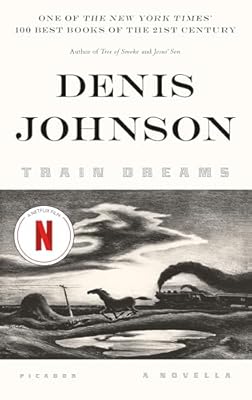
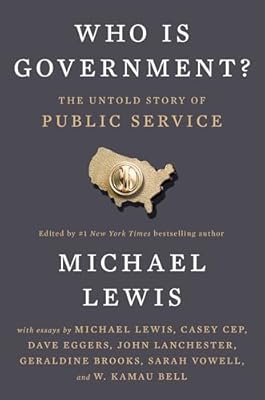


Books with 5+ highlights

W. Timothy Gallwey

James Clear
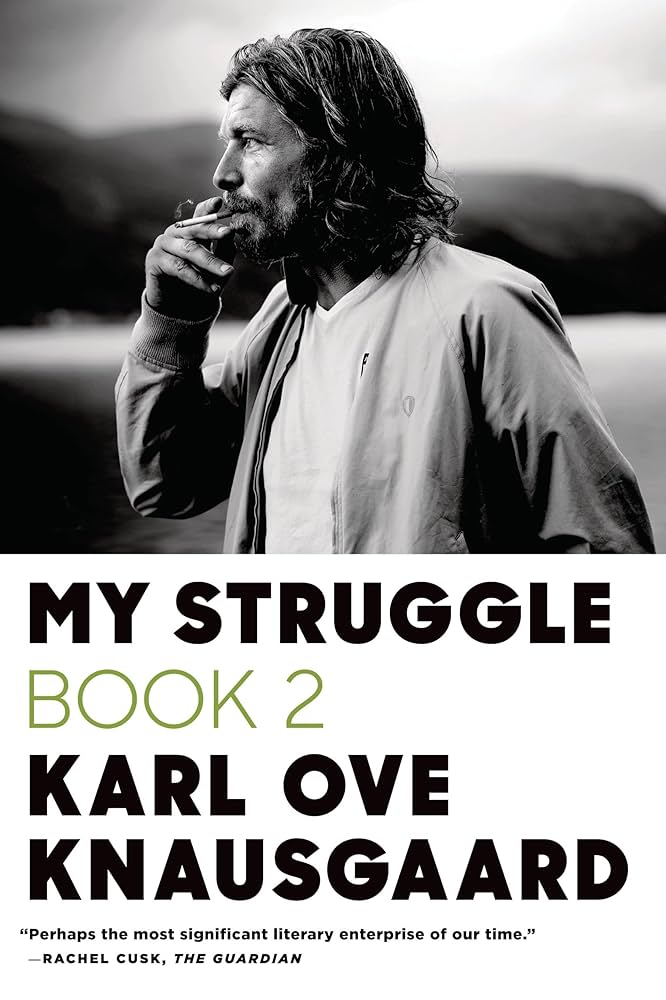
Karl Ove Knausgård

Leo Tolstoy

Vanessa Van Edwards

Marcus Aurelius
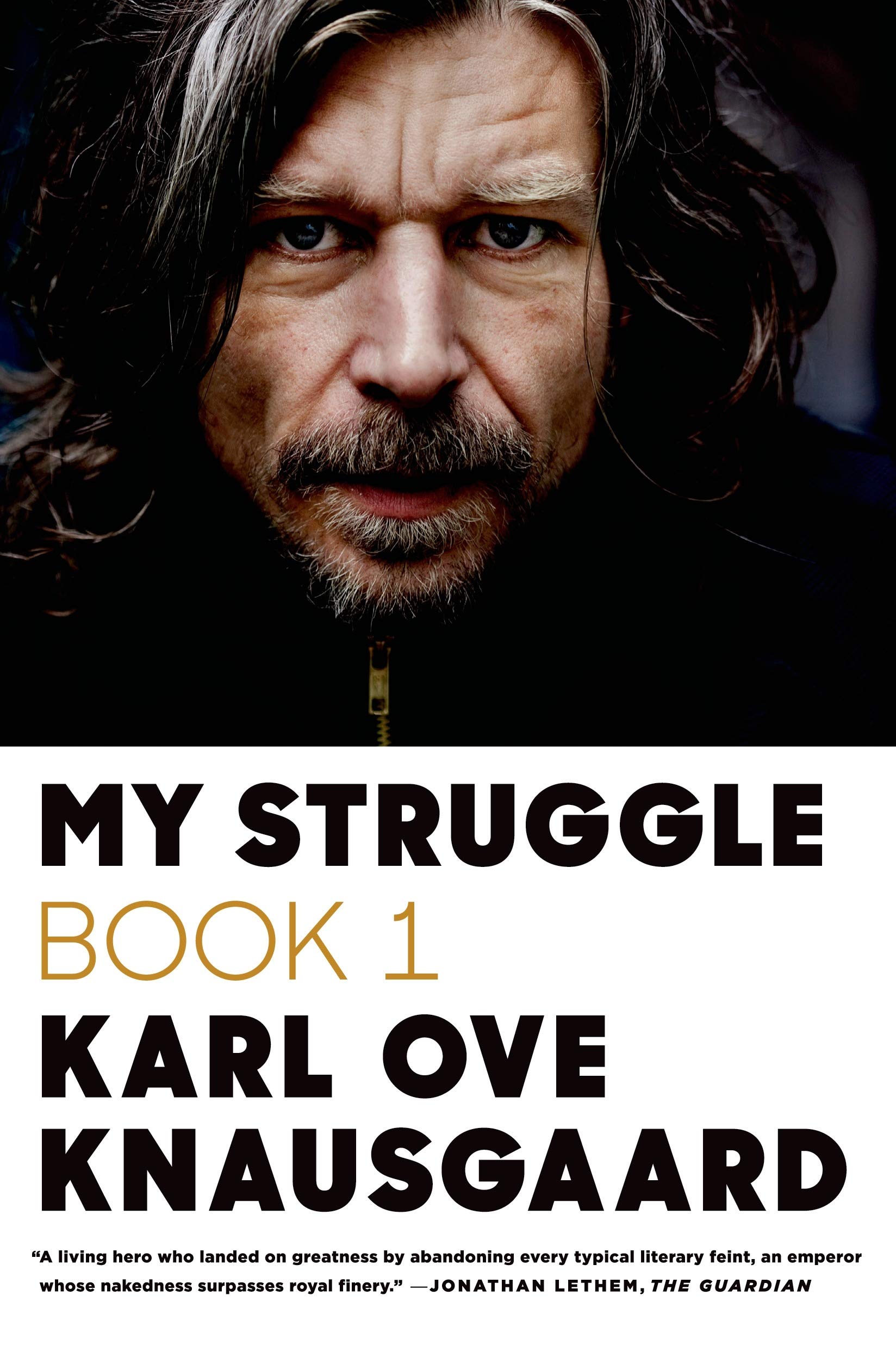
Karl Ove Knausgård

Evan Osnos

Brody Mullins and Luke Mullins

F. Scott Fitzgerald
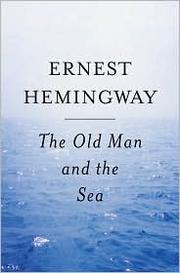
Ernest Hemingway

Kahlil Gibran

John Steinbeck

Sönke Ahrens

The first inner skill to be developed in the Inner Game is that of nonjudgmental awareness. In short, “getting it together” requires slowing the mind. Quieting the mind means less thinking, calculating, judging, worrying, fearing, hoping, trying, regretting, controlling, jittering, or distracting. The first skill to learn is the art of letting go the human inclination to judge ourselves and our performance as either good or bad. Letting go of judgments does not mean ignoring errors. It simply means seeing events as they are and not adding anything to them. Judgment results in tightness, and tightness interferes with the fluidity required for accurate and quick movement. Relaxation produces smooth strokes and results from accepting your strokes as they are, even if erratic. When the mind is free of any thought or judgment, it is still and acts like a mirror. Then and only then can we know things as they are. It is the constant “thinking” activity of Self 1, the ego-mind, which causes interference with the natural capabilities of Self 2. Self 1: conscious Self 2: subconscious
Getting it together mentally in tennis involves the learning of several internal skills: 1) learning how to get the clearest possible picture of your desired outcomes; 2) learning how to trust Self 2 to perform at its best and learn from both successes and failures; and 3) learning to see “nonjudgmentally”—that is, to see what is happening rather than merely noticing how well or how badly it is happening. Self 1 does not trust Self 2, even though it embodies all the potential you have developed up to that moment and is far more competent to control the muscle system than Self 1. The backhand can be used to advantage only on a tennis court, but the skill of mastering the art of effortless concentration is invaluable in whatever you set your mind to. the key to better tennis—or better anything—lies in improving the relationship between the conscious teller, Self 1, and the natural capabilities of Self 2. 
if you can get 1 percent better each day for one year, you’ll end up thirty-seven times better by the time you’re done. “When nothing seems to help, I go and look at the stonecutter hammering away at his rock, perhaps a hundred times without as much as a crack showing in it. Yet at the hundred and first blow it will split in two, and I know it was not that blow that did it—but all that had gone before.” A habit is a behavior that has been repeated enough times to become automatic. The ultimate purpose of habits is to solve the problems of life with as little energy and effort as possible. Any habit can be broken down into a feedback loop that involves four steps: cue, craving, response, and reward. The Four Laws of Behavior Change are a simple set of rules we can use to build better habits. They are (1) make it obvious, (2) make it attractive, (3) make it easy, and (4) make it satisfying. In summary, the cue triggers a craving, which motivates a response, which provides a reward, which satisfies the craving and, ultimately, becomes associated with the cue. Together, these four steps form a neurological feedback loop—cue, craving, response, reward; cue, craving, response, reward—that ultimately allows you to create automatic habits. This cycle is known as the habit loop. Make the behavior difficult and you won’t be able to do it. And if the reward fails to satisfy your desire, then you’ll have no reason to do it again in the future. Without the first three steps, a behavior will not occur. Without all four, a behavior will not be repeated. The cue is about noticing the reward. The craving is about wanting the reward. The response is about obtaining the reward. We chase rewards because they serve two purposes: (1) they satisfy us and (2) they teach us. Rewards are the end goal of every habit. The response is the actual habit you perform, which can take the form of a thought or an action. Cravings are the second step, and they are the motivational force behind every habit. The cue triggers your brain to initiate a behavior. All habits proceed through four stages in the same order: cue, craving, response, and reward. Your habits shape your identity, and your identity shapes your habits. It’s a two-way street. The goal is not to read a book, the goal is to become a reader. The goal is not to run a marathon, the goal is to become a runner. The goal is not to learn an instrument, the goal is to become a musician. Improvements are only temporary until they become part of who you are. You might start a habit because of motivation, but the only reason you’ll stick with one is that it becomes part of your identity. The ultimate form of intrinsic motivation is when a habit becomes part of your identity. It’s one thing to say I’m the type of person who wants this. It’s something very different to say I’m the type of person who is this. It’s hard to change your habits if you never change the underlying beliefs that led to your past behavior. You have a new goal and a new plan, but you haven’t changed who you are. With outcome-based habits, the focus is on what you want to achieve. With identity-based habits, the focus is on who you wish to become. Many people begin the process of changing their habits by focusing on what they want to achieve. This leads us to outcome-based habits. The alternative is to build identity-based habits. With this approach, we start by focusing on who we wish to become. There are three layers of behavior change: a change in your outcomes, a change in your processes, or a change in your identity. Habits are the compound interest of self-improvement. Getting 1 percent better every day counts for a lot in the long-run. Habits are a double-edged sword. They can work for you or against you, which is why understanding the details is essential. Small changes often appear to make no difference until you cross a critical threshold. The most powerful outcomes of any compounding process are delayed. You need to be patient. An atomic habit is a little habit that is part of a larger system. Just as atoms are the building blocks of molecules, atomic habits are the building blocks of remarkable results. If you want better results, then forget about setting goals. Focus on your system instead. You do not rise to the level of your goals. You fall to the level of your systems. In order to improve for good, you need to solve problems at the systems level. Fix the inputs and the outputs will fix themselves. Goals are good for setting a direction, but systems are best for making progress. Goals are about the results you want to achieve. Systems are about the processes that lead to those results. “When nothing seems to help, I go and look at a stonecutter hammering away at his rock, perhaps a hundred times without as much as a crack showing in it. Yet at the hundred and first blow it will split in two, and I know it was not that last blow that did it—but all that had gone before.” Being a little bit nicer in each interaction can result in a network of broad and strong connections over time. Time magnifies the margin between success and failure. It will multiply whatever you feed it. Good habits make time your ally. Bad habits make time your enemy. Your outcomes are a lagging measure of your habits. Your net worth is a lagging measure of your financial habits. Your weight is a lagging measure of your eating habits. Your knowledge is a lagging measure of your learning habits. Your clutter is a lagging measure of your cleaning habits. You get what you repeat. Success is the product of daily habits—not once-in-a-lifetime transformations. Habits are the compound interest of self-improvement. The same way that money multiplies through compound interest, the effects of your habits multiply as you repeat them. They seem to make little difference on any given day and yet the impact they deliver over the months and years can be enormous. It is only when looking back two, five, or perhaps ten years later that the value of good habits and the cost of bad ones becomes strikingly apparent. strategy that he referred to as “the aggregation of marginal gains,” which was the philosophy of searching for a tiny margin of improvement in everything you do. Brailsford said, “The whole principle came from the idea that if you broke down everything you could think of that goes into riding a bike, and then improve it by 1 percent, you will get a significant increase when you put them all together.” 
Clift again, his tumultuous life, his unbridled vitalism. He realized that all the biographies he had read over the last year had this in common: they were all about vitalists. Not in theory, but in practice, they were always out to get the most from life. Jack London, André Malraux, Nordahl Grieg, Ernest Hemingway, Hunter S. Thompson, Mayakovsky. A life is simple to understand, the elements that determine it are few. In mine there were two. My father and the fact that I had never belonged anywhere. It was no more difficult than that. a monomaniac and talk about the same stuff all the time. In that way I hammer it home and you can’t make a mistake.” The only genres I saw value in, which still conferred meaning, were diaries and essays, the types of literature that did not deal with narrative, that were not about anything, but just consisted of a voice, the voice of your own personality, a life, a face, a gaze you could meet. What is a work of art if not the gaze of another person? Not directed above us, nor beneath us, but at the same height as our own gaze. Art cannot be experienced collectively, nothing can, art is something you are alone with. You meet its gaze alone. “Ten years in a warehouse has never hurt anyone,” Geir said. “Yes, it has. But no one who’s been cremated.” “Ha ha ha!” Indifference is one of the seven deadly sins, actually the greatest of them all, because it is the only one that sins against life. If you do something for long enough without the tolerance there are major consequences. You have to pay. It doesn’t come free.” Emmylou Harris’s You can say a lot about my self-image, but it was definitely not shaped in the cool chambers of reason. My intellect may be able to understand it, but it did not have the power to control it. One’s self-image not only encompasses the person you are but also the person you wanted to be, could be or once had been. For the self-image there was no difference between the actual and the hypothetical. It incorporated all ages, all feelings, all drives. meaning is not something we are given, but which we give. Death makes life meaningless because everything we have ever striven for ceases when life does, and it makes life meaningful, too, because its presence makes the little we have of it indispensable, every moment precious. “Ah, a motorbike,” I said. “What is it with you and motorbikes, eh?” Foreshadowing?
All my adult life I have kept a distance from other people, it has been my way of coping, because I become so incredibly close to others in my thoughts and feelings of course, they only have to look away dismissively for a storm to break inside me. I stopped for a few seconds by the newspaper stand wondering whether to buy the two evening papers here, the two biggest publications. Reading them was like emptying a bag of trash over your head. I have no problem with uninteresting or unoriginal people – they may have other, more important attributes, such as warmth, consideration, friendliness, a sense of humor, or talents such as being able to make a conversation flow to generate an atmosphere of ease around them, or the ability to make a family function – but I feel almost physically ill in the presence of boring people who consider themselves especially interesting and who blow their own trumpets. It is not the case that we are born equal and that the conditions of life make our lives unequal, it is the opposite, we are born unequal, and the conditions of life make our lives more equal. We are 80% nature, 20% nurture
I have never understood the point of holidays, For time away from work
I said she should keep her mouth shut and refrain from making decisions like that when she was in such a foul temper. That riled her even more, of course, You think?
the sheer amount of time you spend with your children, which is immense. So many hours, so many days, such an infinite number of situations that crop up and are lived through. 
My reason will still not understand why I pray, but I shall still pray, and my life, my whole life, independently of anything that may happen to me, is every moment of it no longer meaningless as it was before, but has an unquestionable meaning of goodness with which I have the power to invest it.’ ‘If goodness has a cause, it is no longer goodness; if it has a consequence—a reward, it is also not goodness. Therefore goodness is beyond the chain of cause and effect. It was the most pressingly busy season of the year, when an extraordinary tension of self-sacrificing labour manifests itself among all the peasants, such as is never shown in any other condition of life, and such as would be highly esteemed if the people who exhibit this quality esteemed it themselves, if it were not repeated every year, and if the results of that tension were not so simple. Levin suddenly felt like a person who has exchanged a thick fur coat for a muslin garment and who, being out in the frost for the first time, becomes clearly convinced, not by arguments, but with the whole of his being, that he is as good as naked and that he must inevitably perish miserably. Moreover, he was vaguely conscious that what he had called his convictions were really ignorance and, more than that, were a state of mind which rendered knowledge of what he needed impossible. ‘Yes, as a tool I may be of some use. But as a man I—am a ruin!’ I don’t even know myself! “I know my appetites,” as the French say. But to be a friend, one must enter into the state of the friend’s soul, It was a bold, insolent voice that had no consideration for anything, it was the cry of the new human being who had so incomprehensibly appeared from some unknown realm. Well, an egg that has been rolled very often becomes a shlyupik. ‘Capital! Let’s go! At the Matinée Concert there were two very interesting items. One was King Lear on the Heath, a fantasia, and the other was a quartet dedicated to the memory of Bach. Both pieces were new and in the new style, and Levin wished to form an opinion on them. Pestsov argued that art was all one, and that it can only reach its highest manifestations by uniting all the different kinds of art. Nowadays parents are hardly allowed to live, and everything is for the children.’ And my own labour goes for nothing.’ ‘Then why do you go on with it, if it is a clear loss?’ ‘Well, you see ... one goes on! What would you have? It’s a habit, and one knows that it’s necessary! Levin had changed considerably since his marriage; he had become patient, and if he did not understand why things were arranged thus, he told himself that, not knowing everything, he could not judge, and that probably things had to be so; and he tried not to be indignant. All that day she felt as if she were acting in a theatre with better actors than herself, and that her bad performance was spoiling the whole affair. I always loved you, and if one loves, one loves the whole person as he or she is, and not as one might wish them to be.’ “Heavy is the Autocrat’s crown!” that in France a man of fifty considered himself dans la force de l’âge, Prime of his life
‘J’ai forcé la consigne!’ I've forced my way in
His natural feelings prompted him to justify himself and prove that she was in the wrong; but to prove her in the wrong would mean irritating her still more, and widening the breach which was the cause of all the trouble. ALL HAPPY families resemble one another, each unhappy family is unhappy in its own way. Everything that in marriage the chief thing is—love, and that when there is love there will always be happiness, because happiness lies always within oneself. there is nothing less amenable to agreement than disagreement on semi-abstract themes, This whole world of ours is only a speck of mildew sprung up on a tiny planet; yet we think we can have something great—thoughts, actions! They are all but grains of sand!’ ‘I am working, I want to do something, and I had forgotten that it will all end in Death!’ ‘If it were not a pity to give up what has been set going ... after spending so much toil ... I would throw it all up, sell out and, like Nicholas Ivanich, go away ... to hear La belle Hélène,’ Women are the chief stumbling-block in a man’s career. It is difficult to love a woman and do anything else. To achieve it and to love in comfort and unhampered, the only way is to marry! “knowing only your wife, whom you love”—as somebody once said—“you can understand all women better than if you knew thousands”.’ Yes, if you had to carry a load and use your hands at the same time, it would be possible only if the load were strapped on your back: and that is marriage. I found that out when I married. I suddenly had my hands free. But if you drag that load without marriage, your hands are so full that you can do nothing else. Look at Mazankov, at Krupov! They have ruined their careers because of women.’ To keep things straight he was in the habit, some five or six times a year according to circumstances, of secluding himself and clearing up all his affairs. He called it having a clean up, or faire la lessive.27 The morning after the races he woke late, and without having a bath or shaving he put on a linen tunic and, spreading out before him his money, his accounts, and his bills and letters, he set to work. Anything is better than lies and deception! ‘Do come, if only to study manners and customs. These joys were so trifling as to be as imperceptible as grains of gold among the sand, and in moments of depression she saw nothing but the sand; yet there were brighter moments when she felt nothing but joy, saw nothing but the gold. everything would ‘shape itself’ You may be right in thinking that activity backed by material interest is best; but your nature is altogether primesautière,22 as the French say: you want passionate, energetic activity, or nothing at all.’ Heedless
‘A peasant who can read and write is far worse as a labourer. ‘The principal task of philosophy has always, in all ages, been to find the necessary connection existing between personal and general interests. not a lack of kindly honesty and noble desires and tastes, but a lack of the power of living, of what is called heart—the aspiration which makes a man choose one out of all the innumerable paths of life that present themselves, and desire that alone. ‘You can’t imagine what a pleasure this complete laziness is to me: not a thought in my brain—you might send a ball rolling through it!’ ‘Il ne faut jamais rien outrer,’ You should never overdo anything
‘Where is the humiliation? You did not do anything wrong?’ She was not interested in the people she knew, for she felt that nothing new would come from them. ‘After all, how inclined we all are to these cruel spectacles,’ Sport in my opinion has great value, but we, as usual, see only what is most external.’ The monstrous sports of prize-fighting, or the Spanish bullfights, are indications of barbarism, but specialized sport is a sign of progress.’ la pointe de la sauce. The flavor of the sauce
She said all this lightly, rapidly, and with peculiarly sparkling eyes; but Karenin did not now attach any importance to this tone of hers. He only heard her words, and gave them only their direct meaning. And he answered simply, though jokingly. In all this conversation nothing particular passed, but never afterwards could Anna recall this short scene without being tormented by shame. But the memory of that steeplechase long remained the most painful and distressing memory of his life. Vronsky raised his head in amazement and looked as he knew how to, not into the Englishman’s eyes but at his forehead, surprised at the boldness of the question. without love there is no happiness or unhappiness for us, for there would be no life,’ cigar is such a ... not exactly a pleasure, but the crown and sign of pleasure. pleasure lies not in discovering truth but in seeking it.’ He now felt like a man who on coming home finds his house locked against him. ‘I think ... if it is true that there are as many minds as there are heads, then there are as many kinds of love as there are hearts.’ They had to return to the one sure and never-failing resource—slander. ‘entendons nous!’ Let us understand eatch other
As if tears were the necessary lubricant without which the machine of mutual confidence could not work properly between the sisters, after having had a cry they started talking of indifferent matters, and in so doing understood one another. such horrid, ignoble people.’ To speak of it would be to give it an importance that does not belong to it.’ ‘Yes, there is something strange, satanic, and enchanting about her,’ He realized that this Association was merely an anchor to save his brother from self-contempt. ‘You understood and understand me. Good-bye, my sweet one!’ vous filez le parfait amour. You are perfect, my love.
That is why so many prefer women of the demi-monde. If you don’t succeed in that case it only shows that you have not enough money, but in this case one’s pride is in the balance. There are people who when they meet a rival, no matter in what, at once shut their eyes to everything good in him and see only the bad. There are others who on the contrary try to discern in a lucky rival the qualities which have enabled him to succeed, and with aching hearts seek only the good in him. Plato defines in his “Symposium”—both kinds of love serve as a touchstone for men. Some men understand only the one, some only the other. Those who understand only the non-platonic love need not speak of tragedy. For such love there can be no tragedy. “Thank you kindly for the pleasure, good-bye,” and that’s the whole tragedy. And for the platonic love there can be no tragedy either, because there everything is clear and pure, because ...’ women are the pivot on which everything turns! He understood that feeling of Levin’s so well, knew that for Levin all the girls in the world were divided into two classes: one class included all the girls in the world except her, and they had all the usual human failings and were very ordinary girls; while the other class—herself alone—had no weaknesses and was superior to all humanity. He could find no answer, except life’s usual answer to the most complex and insoluble questions. That answer is: live in the needs of the day, that is, find forgetfulness. ‘Consequently, if my senses are destroyed, if my body dies, no further existence is possible?’ This is exactly my belief. When a person dies, the lights go off, and their current existence ends. The only way they continue to live is through the memories of others.
Everything was lit up by her. She was the smile that brightened everything around. He stepped down, avoiding any long look at her as one avoids long looks at the sun, but seeing her as one sees the sun, without looking. Himmlisch ist’s, wenn ich bezwungen Meine irdische Begier; Aber doch wenn’s nicht gelungen Hatt’ich auch recht hübsch Plaisir!’ It is heavenly when I have mastered my earthly desires; but even when I have not succeeded, I have also had right good pleasure!'
All the variety, charm and beauty of life are made up of light and shade.’ Each thought that his own way of living was real life, and that the life of his friend was—illusion. The chief qualities that had won him this general respect in his Office were, first, his extreme leniency, founded on a consciousness of his own defects; secondly, his true Liberalism—not that of which he read in his paper, but that which was in his blood and made him treat all men alike whatever their rank or official position; thirdly and chiefly, his complete indifference to the business he was engaged on, in consequence of which he was never carried away by enthusiasm and never made mistakes. Alexis Alexandrovich Karenin, his sister Anna’s husband, who held one of the most important positions in the Ministry to which that Moscow Board belonged. religion was only good as a check on the more barbarous portion of the population; I believe exactly this
ALL HAPPY families resemble one another, each unhappy family is unhappy in its own way. “Man survives earthquakes, epidemics, the horrors of disease, and agonies of the soul, but all the time his most tormenting tragedy has been, is, and will always be, the tragedy of the bedroom.” —Leo Tolstoy 
Lean in to show and stimulate interest, engagement, and agreement. A closed body signals a closed mind . . . and it inspires close-mindedness in others. When we lean in, we literally feel more motivation. When we lean back, we lose motivation. Leaning in is the single fastest way to look (and feel) interested and engaged. When nervous, we try to calm ourselves down with self-touch. We’re physically telling our body that everything will be okay. We might wring our hands, The palm up cue is a signal of openness and trust. It’s a high warmth cue, best used when trying to get people to be more collaborative and open. Balance warmth and competence cues to be charismatic. highly charismatic, likable, compelling people demonstrate a special blend of two specific traits: warmth and competence. If you can’t showcase your warmth, people won’t believe in your competence. You can have the best content in the world, but if it’s not shared with the right charisma cues, it doesn’t land. 
So keep getting away from it all—like that. Renew yourself. But keep it brief and basic. A quick visit should be enough to ward off all <…> and send you back ready to face what awaits you. You don’t have to turn this into something. It doesn’t have to upset you. Things can’t shape our decisions by themselves. Make sure you remain straightforward, upright, reverent, serious, unadorned, an ally of justice, pious, kind, affectionate, and doing your duty with a will. And when faced with a choice, remember: our business is with things that really matter. Don’t be ashamed to need help. Like a soldier storming a wall, you have a mission to accomplish. And if you’ve been wounded and you need a comrade to pull you up? So what? Everything is brought about by nature, not by anything beyond it, or within it, or apart from it. Raising children is 80% nature, 20% nurture
Practice the virtues you can show: honesty, gravity, endurance, austerity, resignation, abstinence, patience, sincerity, moderation, seriousness, high-mindedness. The things you think about determine the quality of your mind. Your soul takes on the color of your thoughts. Some people, when they do someone a favor, are always looking for a chance to call it in. And some aren’t, but they’re still aware of it—still regard it as a debt. But others don’t even do that. They’re like a vine that produces grapes without looking for anything in return. Don’t waste the rest of your time here worrying about other people—unless it affects the common good. It will keep you from doing anything useful. You’ll be too preoccupied with what so-and-so is doing, and why, and what they’re saying, and what they’re thinking, and what they’re up to, and all the other things that throw you off and keep you from focusing on your own mind. Does the sun try to do the rain’s work? Or Asclepius Demeter’s? And what about each of the stars—different, yet working in common? Choose not to be harmed—and you won’t feel harmed. Don’t feel harmed—and you haven’t been. “If you seek tranquillity, do less.” Prayer of the Athenians: Zeus, rain down, rain down On the land and fields of Athens. philosophy requires only what your nature already demands. Matter. How tiny your share of it. Time. How brief and fleeting your allotment of it. Fate. How small a role you play in it. That things have no hold on the soul. They stand there unmoving, outside it. Disturbance comes only from within—from our own perceptions. To the stand-bys above, add this one: always to define whatever it is we perceive—to trace its outline—so we can see what it really is: its substance. Stripped bare. As a whole. Unmodified. Each of us lives only now, this brief instant. The rest has been lived already, or is impossible to see. The span we live is small—small Body. Soul. Mind. Sensations: the body. Desires: the soul. Reasoning: the mind. Everyone gets one life. Yours is almost used up, and instead of treating yourself with respect, you have entrusted your own happiness to the souls of others. that the longest-lived and those who will die soonest lose the same thing. The body and its parts are a river, the soul a dream and mist, life is warfare and a journey far from home, lasting reputation is oblivion. Doing your job without whining. Remember how long you’ve been putting this off, how many extensions the gods gave you, and you didn’t use them. Not to be constantly correcting people, and in particular not to jump on them whenever they make an error of usage or a grammatical mistake or mispronounce something, but just answer their question or add another example, or debate the issue itself (not their phrasing), or make some other contribution to the discussion—and insert the right expression, unobtrusively. Nor can I feel angry at my relative, or hate him. We were born to work together like feet, hands, and eyes, like the two rows of teeth, upper and lower. To obstruct each other is unnatural. To feel anger at someone, to turn your back on him: these are obstructions. You are an old man. Stop allowing your mind to be a slave, to be jerked about by selfish impulses, to kick against fate and the present, and to mistrust the future. To praise without bombast; to display expertise without pretension. Not to be constantly telling people (or writing them) that I’m too busy, unless I really am. Similarly, not to be always ducking my responsibilities to the people around me because of “pressing business.” 
For humans are merely one form among many, which the world produces over and over again, not only in everything that lives but also in everything that does not live, drawn in sand, stone, and water. And death, which I have always regarded as the greatest dimension of life, dark, compelling, was no more than a pipe that springs a leak, a branch that cracks in the wind, a jacket that slips off a clothes hanger and falls to the floor. I couldn’t sit and chat with people anymore, my awareness of the situation was too acute, and that put me outside The taller of the two had big lips which stayed open, and, in combination with the vacant eyes, made him look stupid. That was how the subconscious worked, it clearly saw itself as a kind of corrective force on thoughts and desires, and undermined everything that might be considered antagonistic to the prevailing common sense. Everything has become intellect, even our bodies, they aren’t bodies anymore, but ideas of bodies, something that is situated in our own heaven of images and conceptions within us and above us, where an increasingly large part of our lives is lived. For while the person is alive the name refers to the body, to where it resides, to what it does; the name becomes detached from the body when it dies and remains with the living, who, when they use the name, always mean the person he was, never the person he is now, a body which lies rotting somewhere. As your perspective of the world increases not only is the pain it inflicts on you less but also its meaning. Meaning requires content, content requires time, time requires resistance. Knowledge is distance, knowledge is stasis and the enemy of meaning. I don’t get anything out of socializing anyway. I never say what I really think, what I really mean, but always more or less agree with whomever I am talking to at the time, pretend that what they say is of interest to me, The only thing I have learned from life is to endure it, never to question it, I have always had a great need for solitude. I require huge swathes of loneliness and when I do not have it, which has been the case for the last five years, my frustration can sometimes become almost panicked, or aggressive. And when I’m fifty, it won’t be long before I’m sixty. And when I’m sixty, it won’t be long before I’m seventy. And that will be that. 
The goal, he said, was to “replace well-fed tigers with hungry tigers.” Status can be frustratingly ephemeral. As you get closer to the top of a pyramid, the steps get crowded. a nation that funnels too much money and opportunity upward gets so top-heavy that it can tip over. Americans tend to root for the adjective (“elite Navy SEALs”) and resent the noun (“the Georgetown elite”). less impressed by signs of fragility than by examples of resilience. If it has a crew working aboard, it’s a yacht. If it’s more than ninety-eight feet, it’s a superyacht. After that, definitions are debated, but people generally agree that anything more than 230 feet is a megayacht, and more than 295 is a gigayacht. American yachtsman Bill Duker said, “If the rest of the world learns what it’s like to live on a yacht like this, they’re gonna bring back the guillotine.” 
Joseph Coors Sr., of the beer brewing empire, and in 1973 he funded the creation of the Heritage Foundation, The American economy had become submerged in “stagflation,” a combination of slowing growth and rising inflation “The American people have awakened to the environmental dangers from abuse and neglect,” Hale told his colleagues. “We in Congress, sharing that awareness and empowered to protect the general welfare, have responded with an outpouring of legislation over the past few years.” Just a few days later, Hale’s plane disappeared over the Alaskan wilderness. 1973, concern turned to panic, as a collection of Middle East nations suspended the export of oil to the United States in retaliation for America’s backing of Israel in the Yom Kippur War. a former CIA agent Should be officer, not agent.
Since the start of the Industrial Age, the struggle between organized labor and corporate management had been the defining conflict of America’s economy. Unlike the New Deal, this period of government growth didn’t spring from a specific crisis; it was triggered by revelations about a range of systemic harms that accompanied the ascent of corporate capitalism. 
lived in a house in Gorizia .location

scorn. If personality is an unbroken series of successful gestures, then there was something gorgeous about him, some heightened sensitivity to the promises of life, as if he were related to one of those intricate machines that register earthquakes ten thousand miles away. It is invariably saddening to look through new eyes at things upon which you have expended your own powers of adjustment. “There are only the pursued, the pursuing, the busy, and the tired.” No amount of fire or freshness can challenge what a man will store up in his ghostly heart. I wasn’t actually in love, but I felt a sort of tender curiosity. rent asunder by dissension. I was within and without, simultaneously enchanted and repelled by the inexhaustible variety of life. 
But the old man always thought of her as feminine and as something that gave or withheld great favours, and if she did wild or wicked things it was because she could not help them. The moon affects her as it does a woman, he thought. Most people are heartless about turtles because a turtle's heart will beat for hours after he has been cut up and butchered. But the old man thought, I have such a heart too and my feet and hands are like theirs. It is better to be lucky. But I would rather be exact. Then when luck comes you are ready. No one should be alone in their old age, he thought. But it is unavoidable. The thousand times that he had proved it meant nothing. Now he was proving it again. Each time was a new time and he never thought about the past when he was doing it. 
To measure you by your smallest deed is to reckon the power of ocean by the frailty of its foam. For what is it to die but to stand naked in the wind and to melt into the sun? Beauty is eternity gazing at itself in a mirror. But you are eternity and you are the mirror. But let not him who longs much say to him who longs little, “Wherefore are you slow and halting?” But you who are strong and swift, see that you do not limp before the lame, deeming it kindness. You talk when you cease to be at peace with your thoughts; And when you can no longer dwell in the solitude of your heart you live in your lips, and sound is a diversion and a pastime. And in much of your talking, thinking is half murdered. For thought is a bird of space, that in a cage of words may indeed unfold its wings but cannot fly. When you part from your friend, you grieve not; For that which you love most in him may be clearer in his absence, as the mountain to the climber is clearer from the plain. You need to step back to see the existance and importance
If he is indeed wise he does not bid you enter the house of his wisdom, but rather leads you to the threshold of your own mind. Your reason and your passion are the rudder and the sails of your seafaring soul. If either your sails or your rudder be broken, you can but toss and drift, or else be held at a standstill in mid-seas. Your soul is oftentimes a battlefield, upon which your reason and your judgment wage war against your passion and your appetite. Verily all things move within your being in constant half embrace, the desired and the dreaded, the repugnant and the cherished, the pursued and that which you would escape. These things move within you as lights and shadows in pairs that cling. And when the shadow fades and is no more, the light that lingers becomes a shadow to another light. And thus your freedom when it loses its fetters becomes itself the fetter of a greater freedom. Nothing is ever good enough
For how can a tyrant rule the free and the proud, but for a tyranny in their own freedom and a shame in their own pride? Is not remorse the justice which is administered by that very law which you would fain serve? For the master spirit of the earth shall not sleep peacefully upon the wind till the needs of the least of you are satisfied. Forget not that modesty is for a shield against the eye of the unclean. Your clothes conceal much of your beauty, yet they hide not the unbeautiful. For that which is boundless in you abides in the mansion of the sky, whose door is the morning mist, and whose windows are the songs and the silences of night. Your house shall be not an anchor but a mast. Verily the lust for comfort murders the passion of the soul, and then walks grinning in the funeral. When you are sorrowful, look again in your heart, and you shall see that in truth you are weeping for that which has been your delight. When you are joyous, look deep into your heart and you shall find it is only that which has given you sorrow that is giving you joy. The deeper that sorrow carves into your being, the more joy you can contain. For if you bake bread with indifference, you bake a bitter bread that feeds but half man’s hunger. Work is love made visible. And if you cannot work with love but only with distaste, it is better that you should leave your work and sit at the gate of the temple and take alms of those who work with joy. But I say to you that when you work you fulfill a part of earth’s furthest dream, assigned to you when that dream was born, And in keeping yourself with labour you are in truth loving life, And to love life through labour is to be intimate with life’s inmost secret. You give but little when you give of your possessions. It is when you give of yourself that you truly give. Your children are not your children. They are the sons and daughters of Life’s longing for itself. And ever has it been that love knows not its own depth until the hour of separation. Shall the day of parting be the day of gathering? And shall it be said that my eve was in truth my dawn? And you, vast sea, sleeping mother, Who alone are peace and freedom to the river and the stream, Only another winding will this stream make, only another murmur in this glade, And then I shall come to you, a boundless drop to a boundless ocean. Fain would I take with me all that is here. But how shall I? A voice cannot carry the tongue and the lips that gave it wings. Alone must it seek the ether. And alone and without his nest shall the eagle fly across the sun. It is not a garment I cast off this day, but a skin that I tear with my own hands. 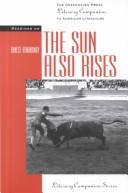
“I can’t stand it to think my life is going so fast and I’m not really living it.” I mistrust all frank and simple people, especially when their stories hold together, 
But the Hebrew word, the word timshel—‘Thou mayest’—that gives a choice. It might be the most important word in the world. That says the way is open. That throws it right back on a man. For if ‘Thou mayest’—it is also true that ‘Thou mayest not.’ Don’t you see?” I know why I’m going—and, Tom, I know where I’m going, and I am content.” Go through the motions, Adam.” “What motions?” “Act out being alive, like a play. And after a while, a long while, it will be true.” It was easy to guide a man’s strength where it was impossible to resist him. if you can bring yourself to face not shadows but real death, described and recognizable, by bullet or saber, arrow or lance, then you need never be afraid again, Always you must leave a man one escape before death. installed justly to make little boys feel littler and stupid boys aware of their stupidity; When a child first catches adults out—when it first walks into his grave little head that adults do not have divine intelligence, that their judgments are not always wise, their thinking true, their sentences just—his world falls into panic desolation. The gods are fallen and all safety gone. And there is one sure thing about the fall of gods: they do not fall a little; they crash and shatter or sink deeply into green muck. It is a tedious job to build them up again; they never quite shine. And the child’s world is never quite whole again. It is an aching kind of growing. And it never failed that during the dry years the people forgot about the rich years, and during the wet years they lost all memory of the dry years. It was always that way. You can boast about anything if it’s all you have. Maybe the less you have, the more you are required to boast. 
The trick is that he did not organise his notes by topic, but in the rather abstract way of giving them fixed numbers. He did not just copy ideas or quotes from the texts he read, but made a transition from one context to another. Whenever he read something, he would write the bibliographic information on one side of a card and make brief notes about the content on the other side (Schmidt 2013, 170). These notes would end up in the bibliographic slip-box. Studies on highly successful people have proven again and again that success is not the result of strong willpower and the ability to overcome resistance, but rather the result of smart working environments that avoid resistance in the first place he excuses himself every day after his 9-5 shift and goes home to do what he liked most: reading and following his diverse interests in philosophy, organizational theory and sociology. Routines require simple, repeatable tasks that can become automatic and fit together seamlessly (cf. Mata, Todd, and Lippke, 2010). Even the best tool will not improve your productivity considerably if you don’t change your daily routines the tool is embedded in, just as the fastest car won’t help you much if you don’t have proper roads to drive it on.